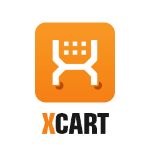TechnologyCounter provides genuine, unbiased real user reviews to help buyers make informed decisions. We may earn a referral fee when you purchase through our links, at no extra cost to you.
List of 15 Best Ecommerce Tools
Showing 1 - 15 of 371 productsBigCommerce is a leading e-commerce platform that empowers businesses of all sizes to sell and grow online. With a user-friendly interface, customizable designs, and powerful marketing tools, BigCommerce makes it easy for merchants to establish a str...Read BigCommerce Reviews
Spocket is a dropshipping platform that connects entrepreneurs, retailers, and suppliers worldwide. With seamless integration and a user-friendly interface, Spocket revolutionizes the way businesses operate by providing access to a vast catalog of hi...Read Spocket Reviews
Payhip is a leading platform for selling and distributing digital products. With a user-friendly interface and strong security features, Payhip allows creators to effortlessly sell their products online and reach a global audience. From ebooks and co...Read Payhip Reviews
RapBooster Basic streamlines marketing efforts through the widespread use of WhatsApp. This software allows businesses to effortlessly send various forms of media, including messages, images, videos, and audio, to potential customers. It also enables...Read Rap Booster Reviews
Weebly Ecommerce is a popular and user-friendly website builder that allows individuals and businesses to create their own online stores with ease. With its intuitive interface and a wide range of customizable templates and features, Weebly Ecommerce...Read Weebly Ecommerce Reviews
WooCommerce is a e-commerce platform designed for businesses looking to establish and grow their online store. With its user-friendly interface and customizable features, WooCommerce allows entrepreneurs to seamlessly manage product listings, invento...Read WooCommerce Reviews
PrestaShop is a and versatile e-commerce platform that is trusted by over 300,000 merchants worldwide. Equipped with a user-friendly interface and a wide range of features, it allows businesses to easily create and manage their online stores. With it...Read PrestaShop Reviews
OpenCart is a popular and user-friendly open-source eCommerce platform that allows businesses of all sizes to create and manage their online stores with ease. It offers a range of features and customizable options to help merchants establish a strong...Read OpenCart Reviews
Wix is an innovative website building platform, empowering individuals and businesses to create professional and visually appealing websites without any coding or design skills. With its user-friendly interface and wide range of customizable template...Read Wix Reviews
Squarespace is an innovative website builder and hosting platform that empowers individuals and businesses to create stunning and professional websites with ease. With its user-friendly interface and customizable templates, Squarespace is the go-to c...Read Squarespace Reviews
X-Cart is a e-commerce platform for businesses looking to take their online presence to new levels. With its user-friendly interface features, X-Cart makes it easy for anyone to set up and manage a successful online store. Trusted by thousands of mer...Read X-Cart Reviews
Oberlo is a versatile e-commerce tool that allows users to effortlessly import and sell products from suppliers directly to their online store. With its user-friendly interface is a functionality, Oberlo revolutionizes the way dropshipping businesses...Read Oberlo Reviews
Sellbrite, a leading multi-channel eCommerce software, is revolutionizing the way businesses sell online. With its efficient and user-friendly platform, Sellbrite allows businesses to seamlessly manage their inventory, orders and listings across mult...Read Sellbrite Reviews
SITE123 is a user-friendly website builder that empowers individuals and businesses to create professional, functional and visually appealing websites effortlessly. With its simple drag-and-drop interface and numerous customizable templates, SITE123...Read SITE123 Reviews
Zonos is a software solution that streamlines international ecommerce for businesses of all sizes. With Zonos, managing duties, taxes, and compliance regulations has never been easier. From seamless integration with popular platforms to efficient ord...Read Zonos Reviews
- What Is Ecommerce Tools?
- Top Reasons Why Businesses Need Ecommerce Tools?
- What Are the Top Key Features of Ecommerce Tools?
- What Are the Top Benefits of Ecommerce Tools?
- What Are the Steps to Choose the Right Ecommerce Tools?
- What Are the Types of Ecommerce Tools for Different Industries?
- What Are the Technology Trends for Best Ecommerce Tools?
- What Are the Deployment Options for Ecommerce Tools?
What Is Ecommerce Tools?
Ecommerce tools are online commerce software products that assist businesses to create and maintain effective web storefronts. Ecommerce shops often utilise them to manage their products, display them to customers, receive payments, and package and deliver orders.
E-commerce tools are intended to help firms develop and manage their online operations with fewer resources and reduced risk. An e-commerce tools, for example, enables businesses to construct an online storefront, list their products, and manage client accounts and orders.
A payment gateway enables them to accept consumer payments and process those payments through their merchant account.
An inventory management system assists them in tracking and managing their inventory, allowing them to resupply their shelves as needed. And an order fulfilment system assists them in packaging, processing, and delivering products to their customers.
These are just a few of the many useful e commerce tools that businesses may utilise to help them manage their online business more efficiently. Companies can save time and money by taking the time to identify the best ecommerce tools for their purposes, while also providing a more fulfilling experience to their customers.
Top Reasons Why Businesses Need Ecommerce Tools?
1. Increase revenue by introducing items and services to a worldwide market.
2. Increase client base by allowing customers to make purchases from anywhere and at any time.
3. Simplify the purchasing process by offering clients a simple checkout experience.
4. Reduce client abandonment by customising and personalising the user experience.
5. Use search engine marketing and optimisation tactics to get more sales leads.
6. Make use of social media to raise customer awareness and involvement.
7. Improve customer service by better managing orders and fulfilment procedures.
8. Automate client email communication in order to deliver key promotional messages more quickly.
9. Use sophisticated analytics to track customer interactions with the store.
10. Allow for secure and speedy payment processing.
11. Reduce customer service and IT costs by managing customers remotely.
12. Automate marketing campaigns to quickly reach out to customers with discounts and offers.
13. Provide awards and loyalty programmes to increase client loyalty.
14. Integrate rating and review systems to swiftly generate client feedback.
15. Integrate with other software systems like accounting and ERP to increase visibility and control over business activities.
What Are the Top Key Features of Ecommerce Tools?
The top key features of e-commerce tools are:
1. Shopping Cart: A shopping cart is a must-have element for any e Commerce tools. Customers can add the products they want to buy to a virtual cart and then proceed to the checkout process.
2. Payment Processing: Payment processing is an important function for e-commerce tools since it enables clients to make secure online payments. Stripe, PayPal, and Authorize.net are all excellent payment gateways for this purpose.
3. Security: Ecommerce websites must protect client data through encryption, fraud detection, and other safeguards. This is accomplished by utilising SSL certificates and other security best practises.
4. Inventory Management: Inventory management enables retailers to keep track of their supply levels and alter prices as needed. It is an essential component of any online store.
5. Product Catalogue: e-Commerce tools should provide a function that allows merchants to simply produce product descriptions and photographs.
6. Search & Sort: Search & sort tools assist clients in rapidly finding the things they seek. To improve the user experience, this capability should be provided in eCommerce tools.
7. Shipping Management: Shipping management is an important function for ecommerce stores since it allows them to handle goods shipping to customers.
8. Customer Support: Customer support should be included in e-Commerce tools so that customers may get help if they need it. Live chat, FAQs, or a ticket system could all be included.
9. Analytics and Reports: Analytics and reporting provide merchants with information about client behaviour, allowing them to optimise their marketing and other tactics.
10. Mobile Commerce: As mobile commerce grows in popularity, the best eCommerce tools must enable mobile-friendly experiences for clients on the go. This comprises the creation of a responsive website and an app interface.
What Are the Top Benefits of Ecommerce Tools?
The top benefits of ecommerce tools are:
1. Improved customer service: e-Commerce tools can automate customer care operations, ensuring consumers are answered swiftly and accurately and minimising the need for customer support personnel.
2. Increased sales: e-Commerce tools that provide personalised product recommendations, targeted promotions, and better cross-sells can assist increase sales.
3. Increased convenience: Best eCommerce tools, such as one-click checkout and quick payment alternatives, can make buying easier and more convenient for customers.
4. Improved customer loyalty: By offering automated discounts and reward programmes, ecommerce technologies can help to increase customer loyalty.
5. Cost savings: Ecommerce technologies can assist you save money by optimising procedures like product management and order fulfilment, as well as automating some customer support operations.
6. Improved security: The use of secure payment methods and data encryption helps protect the safety and security of consumer data.
7. Increased reach: E-commerce tools can assist organisations in reaching out to new customers through targeted marketing campaigns and social media adverts.
8. Enhanced analytics: E-commerce data analysis can help organisations better understand customer behaviour and make more educated decisions.
What Are the Steps to Choose the Right Ecommerce Tools?
1. Establish your needs: Consider the extent of your business and the functionality you need from your eCommerce tools. Determine which aspects of your organisation, such as inventory management, payment processing, order fulfilment, and customer support, could benefit from additional technology.
2. Conduct research: Investigate the market to find the best ecommerce tools for your company's requirements.
3. Contrast and compare solutions: When you've identified prospective solutions, compare and contrast them to make sure they satisfy your requirements. Take into account everything from the pricing structure to the user interfaces and simplicity of use.
4. Determine scalability: Make certain that the platform you choose is scalable and can grow with your company.
5. Develop a timeline: Create a timetable for implementation and beta testing.
6. Request demonstrations: Before deciding on eCommerce tools, request demos to examine its features and performance.
7. Develop a timeline: Check the compatibility of any third-party services you intend to use with the ecommerce tool you are considering.
8. Finalize the selection: After you've completed each stage, it's time to make your final decision.
What Are the Types of Ecommerce Tools for Different Industries?
1. Industry-Specific Business Applications: Industry-specific business applications, such as accounting, point-of-sale (POS), or customer relationship management (CRM), are popular eCommerce tools in numerous industries.
2. Shopping Cart Platforms: Shopping cart platforms allow businesses to add and manage products, receive payments via various payment processors, and send orders via integrated shipping solutions.
3. Payment Processing Systems: Payment processing systems enable businesses to take credit cards, PayPal, and other digital wallets securely.
4. Website Building Platforms: Website builders such as WordPress and Squarespace provide drag-and-drop design tools for constructing user-friendly ecommerce websites with professional designs.
5. Analytics and Marketing Tools: Companies use analytics and marketing solutions like Google Analytics and Omnisend to track sales metrics and evaluate the effectiveness of various marketing initiatives.
6. Social Media Management Platforms: E commerce tools like Hootsuite allow businesses to manage many social media accounts in one place, create compelling content, and track customer engagement.
7. Online Store Management Systems: Online store management systems, such as Magento or WooCommerce, include comprehensive inventory, sales, and product organization systems that make it simple to build hundreds of product variations and adjust prices quickly.
What Are the Technology Trends for Best Ecommerce Tools?
Wide-ranging automated procedures, higher security, streamlined payment models, improved customer experiences, and increased personalisation are among the technology developments for finest ecommerce tools. Process automation enables streamlined operations, increased efficiency, and cost savings.
Customers benefit from increased security, as well as enhanced protection of consumer data. Payment structures that are simplified, such as subscription-based models, boost client convenience and acceptability.
More personalised and engaging interactions are possible with improved customer experiences. Finally, enhanced personalization makes it possible to use shared consumer data, such as preferences, for targeted advertising, product recommendations, and personalised content.
What Are the Deployment Options for Ecommerce Tools?
The deployment choices for ecommerce tools differ based on the tool.
In general, e commerce tools can be delivered via self-hosted or cloud-based systems.
1. Self-hosted e-commerce tools necessitate the purchase, installation, and management of software and hardware by the firm. This approach frequently provides more control, but it also costs more time and money.
Furthermore, organizations must be prepared to deal with any technical challenges that may develop.
2. Cloud-based ecommerce options are hosted and managed in the cloud by the vendor. This increases convenience but reduces customising options.
Cloud-based solutions, on the other hand, typically require less maintenance, and some providers provide support services to help with the adoption process.















